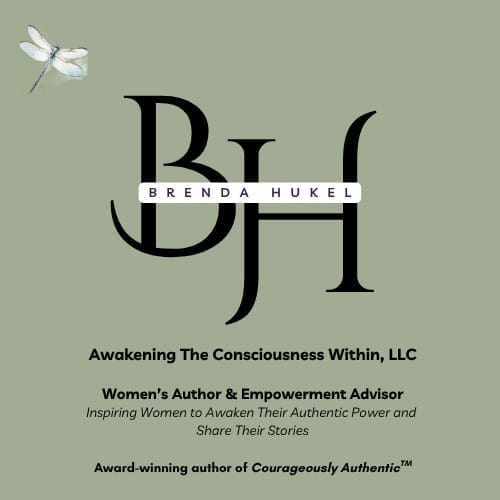COURAGEOUSLY AUTHENTIC™️ - BRENDA HUKEL
“Breaking free from a victim mindset is the first step to reclaiming your power and transforming your life.”
~ Brenda Hukel
Recognizing the Signs of an Unconscious Victim Mindset
As you journey toward greater self-awareness, it’s important to approach this topic with an open mind and a willingness to explore your true self. The unconscious victim mindset can be subtle, manifesting in ways that may not always be immediately apparent.
By gently recognizing these patterns, you open the door to profound transformation and healing. Below, I’ve organized the signs to help you identify where these tendencies might be showing up in your life. Remember, this is not about judgment but awakening to the possibilities beyond these limiting beliefs.
1. External Blame and Powerlessness
Blaming Others: Frequently attributing your challenges to others’ actions.
Feeling Powerless: Believing you have no control over your life circumstances.
Perpetual Victim Narratives: Repeating stories of unfair treatment that reinforce victimhood.
Sense of Hopelessness: Feeling that nothing you do will make a difference.
2. Emotional Struggles and Negative Self-Talk
Self-Pity: Regularly feeling sorry for yourself and focusing on hardships.
Resentment: Holding onto bitterness and anger towards those you believe have wronged you.
Negative Self-Talk: Engaging in self-defeating thoughts that diminish your self-worth.
Emotional Numbing: Using behaviors like overeating or excessive screen time to avoid difficult emotions.
3. Avoidance and Inaction
Avoidance of Responsibility: Reluctance to take ownership of your actions and their outcomes.
Passive Approach to Life: Waiting for others to take action or solve your problems.
Avoiding Conflict: Steering clear of difficult conversations that could lead to resolution.
Avoiding Opportunities: Passing up chances for growth due to fear or self-doubt.
4. Dependency and Validation
Dependency on External Validation: Relying on others’ approval to feel good about yourself.
Reluctance to Ask for Help: Feeling unworthy of support and struggling alone.
Difficulty in Setting Boundaries: Failing to set healthy limits with others, leading to feelings of being taken advantage of.
5. Limiting Beliefs and Self-Sabotage
Self-Sabotage: Engaging in behaviors that undermine your success without realizing it.
Fear of Change: Avoiding change due to fear of the unknown or potential failure.
Belief in Limited Options: Convincing yourself that you have few choices in life, keeping you stuck.
Unconscious Sabotage: Engaging in procrastination, self-neglect, or destructive habits that limit your progress.
6. Comparing and Judging
Comparing Yourself to Others: Constantly measuring your life against others and feeling inadequate.
Lack of Gratitude: Focusing on what you lack rather than appreciating what you have.
Unwillingness to Forgive: Holding onto past hurts and using them as a reason for unhappiness.
Focus on the Past: Dwelling on past traumas or injustices that are preventing you from moving forward.
Closing Thoughts
By acknowledging these signs with a spirit of gentleness and a desire for growth, you can shift from a limitation mindset to one of empowerment and possibility. If you haven’t yet taken the Victim Mentality Assessment, I encourage you to do so—it’s a powerful first step in uncovering these patterns and beginning your journey toward greater empowerment and self-awareness. For more in-depth information on The Hidden Cost of Victimhood, be sure to reference Chapter 5 in my book, Courageously Authentic™️.





